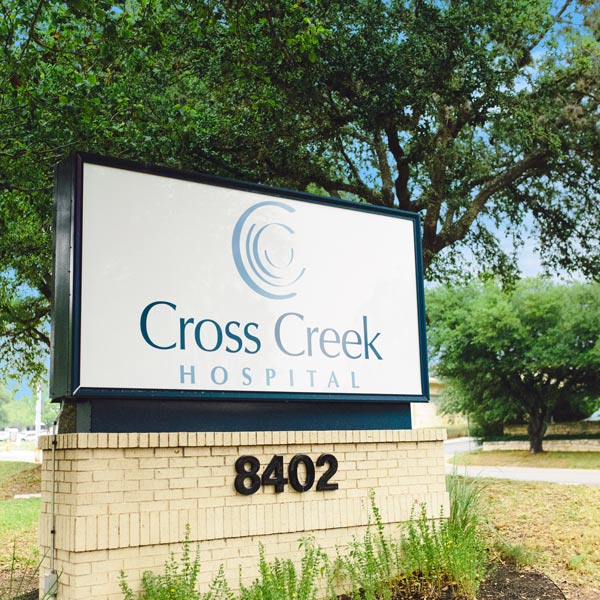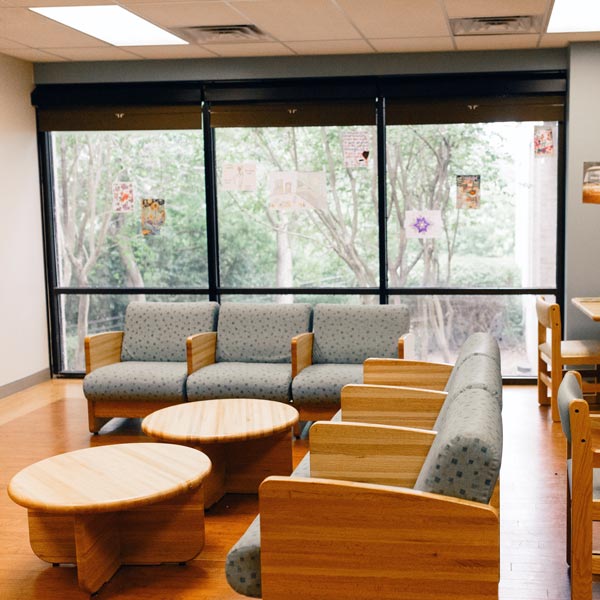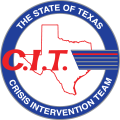Cross Creek Hospital Together With Ascension Seton helps children, adolescents, and adults who are struggling with drug addiction through an unmatched quality of care and support. Located in Austin, TX, Cross Creek Hospital Together With Ascension Seton is the leading provider of drug addiction treatment.
Learn More About Drug Addiction Treatment
Learn more about drug addiction treatment at Cross Creek Hospital Together With Ascension Seton in Austin, TX
Individuals who are struggling with symptoms of a mental health condition often self-medicate with drugs and/or alcohol as a means of coping with the unpleasantness of said symptoms. When this is the case, a person may need treatment for existing chemical dependency concerns in order to abstain from the use of substances. By receiving care at our treatment center that instills coping skills for refraining from drug and/or alcohol use, an individual is able to replace his or her previous unhealthy methods for coping with new tools for managing symptoms of a mental illness or illnesses. Additionally, if an individual is strictly battling a substance abuse problem, he or she may require intensive care to gain control over their recovery. Substance abuse treatment can afford a person the opportunity to achieve healing and to maintain recovery from addiction so that a healthy life can be realized. At Cross Creek Hospital Together With Ascension Seton, a hospital for substance abuse treatment in Austin, we understand that chemical dependency concerns plague many people. Substance abuse is known to compromise an individual’s mental and physical health and exacerbate symptoms of a mental health disorder. Because of these effects, we include care at our hospital that addresses the causes of substance abuse, implements a variety of therapeutic interventions that foster skill-building for managing cravings and impulses and explores the variety of recovery supports available to individuals to assist with ongoing recovery maintenance. Here at Cross Creek Hospital Together With Ascension Seton, we are here to help you or your loved one heal and acquire the healthy future that is deserved.
How to Help a Loved One
Helping a loved one get treatment for drug addiction
When someone you care for is battling a substance abuse problem, you may feel overwhelming concern for his or her health and well-being. You may wonder why he or she does not stop this harmful cycle of unhealthy behavior that has likely caused strife in your loved one’s life. As a concerned friend, family member, or other loved one, there are some things, however, that you can do to help someone who is grappling with the all-encompassing destruction caused by the presence of a chemical dependency problem:
- Educate yourself on what it means to have an addiction to drugs and/or alcohol. By learning all that you can about substance abuse, you can begin to understand what your loved one is going through.
- Try not to enable your loved one’s substance abusing behaviors. Those who are addicted to drugs and/or alcohol frequently try to manipulate individuals closest to them into giving them money to support their problem or attempt to convince loved ones that they need to abuse a substance or substances in order to function. It is imperative that you, as a concerned loved one, do not contribute to an individual’s substance abuse problem. By enabling an addiction, you could be helping to prevent a person from getting the care he or she needs.
- Research substance abuse treatment options that will meet the needs of your loved one or family member.
- Express your sincerest concerns with your loved one and present him or her with the treatment options you found through your research.
- Convey your unyielding support for your loved one to your loved one so that he or she know you will be there for him or her for the duration of the treatment process.
Lastly, if you feel you need more guidance or additional assistance in navigating the process of seeking treatment and recovery supports, do not hesitate to contact the treatment provider of your choice. A mental health professional can provide referrals, information for discussing the need for treatment with your loved one, and the process for engaging in treatment and recovery once your loved one has committed to working on healing and recovery.
Why Consider Treatment
Why consider treatment for drug addiction at Cross Creek Hospital Together With Ascension Seton in Austin, TX
The presence of a substance abuse problem can be extremely detrimental to an individual’s physical and mental health, as well as other areas of his or her life. Those with chemical dependency problems are known to experience a decline in functioning in academic and occupational settings. Additionally, relationships with others, including spouses, children, friends, and coworkers, are also known to be adversely affected. With regards to an individual’s physical health, those who battle addiction can experience permanent damage to their vital organs or develop conditions that could require life-long medical interventions. A person’s mental health is also at risk for harm when an individual regularly uses drugs and/or alcohol as certain illnesses can manifest and create additional obstacles for an individual. Because of these adverse effects, it is imperative that a person seeks and receives care as soon as possible so that these consequences can be prevented and avoided all together. By receiving care at our hospital, an individual can rebuild his or her life and be free from the vicious cycle of addiction.
Types of Treatment
Types of drug addiction treatment offered at Cross Creek Hospital Together With Ascension Seton in Austin, TX
At Cross Creek Hospital Together With Ascension Seton, a substance abuse treatment center in Austin, we are devoted to providing everyone who seeks care at our hospital, for substance abuse problems, with the respect and dignity that they deserve. Our all-encompassing goal for treatment is to help men, women, and adolescents improve their overall functioning by helping them to stabilize and to continue their recovery with new tools that they will be taught in the treatment setting. We are proud to be able to achieve this goal by utilizing the structure and processes of a treatment model that combines cognitive-behavioral therapy, experiential therapies, and didactic therapies.
All of the treatment methods implemented in our inpatient programming utilize a multidisciplinary focus in order to ensure that an integrated approach to treatment that facilitates increased stabilization and growth is received by all patients. Furthermore, we place a high regard on the involvement of our patients’ families, knowing that their contribution to the therapeutic process is paramount to successful healing. The emphasis of our treatment here at Cross Creek Hospital Together With Ascension Seton is not diagnosis-specific, but rather focuses on treating the symptoms that are plaguing each individual. We are devoted to implementing a truly holistic approach that aims to maximize patient care and help them achieve their highest level of functioning.
The following methods for care may be incorporated into the individualized treatment plans that are given to each adolescent, adult, and senior adult who are engaged in services at Cross Creek Hospital Together With Ascension Seton:
Medication management at our hospital: The use of psychotropic medications, namely antidepressants and/or antianxiety agents, are commonly used in conjunction with other therapeutic methods as a means of fully treating the symptoms of a mental illness that could accompany a substance abuse problem. A patient’s need for medication, however, is always determined on a case-by-case basis. Patients meet with a psychiatrist at least once each day so that the therapeutic effectiveness of any medications that have been prescribed can be monitored and changes can be made when necessary. Additionally, there are also nurses on staff who assist in monitoring medication needs.
Individual therapy at our treatment center: This individual case consultation will occur at a minimum of once each week, but additional sessions may be added whenever needed or deemed beneficial to the patient. Various members of our patients’ treatment team, including their assigned individual therapists, provide these consultations and afford patients a time to meet one-to-one to discuss any concerns they have, process through various emotions they are experiencing, to track treatment goals and assist patients in identifying community supports to ensure continuity of care upon discharge from our treatment center.
Family therapy at our hospital: Family involvement is important in the overall success of treatment for our patients. Keeping this in mind, family therapy sessions are held at least once each week for our adolescent patients and are held on as-needed basis for our adult patients. For the family members of those who are battling a substance abuse problem, this can be a time for them to learn about the illness of addiction itself, while also gaining valuable knowledge on ways in which they can be of best support to their loved one.
Group therapy at our treatment center: Group therapy is a significant component to the treatment options offered here at Cross Creek Hospital Together With Ascension Seton. The types of groups that our patients may engage in can include:
- Education groups teach patients about the origin and the nature of the disorder(s) that they are suffering from. In these groups, patients learn to identify problems, form a treatment plan, and work effectively on stabilizing their recovery.
- Process groups provide a structured setting for the discussion of issues and concerns that are identified by patients. This group focuses on the processing of feelings, internal communication and cooperation, and participation in healthy group feedback.
- Addictions groups explore the wide range of self-destructive behaviors that sometimes accompany substance abuse, such as self-mutilation, disordered eating, and unhealthy relationships, while also exploring the varied recovery paths and supports available to individuals seeking to maintain recovery.
- Journaling groups provide a structured setting for developing therapeutic and recovery skills in the form of journaling, keeping a diary, completing homework assignments, and other writing tasks.
- Music therapy groups provide an emotionally evocative group setting that is designed to provide the participants with an opportunity to practice affect management skills.
- Healthy relationships groups focus on developing social skills and practicing health interactions. It provides a forum for structured, supportive risk-taking and practicing assertiveness, and the giving and taking of feedback.
- Discharge planning groups provide an opportunity for building skills that will improve the quality of life after discharge and reduce the likelihood of readmission.
Experiential therapy at our hospital: In an attempt to provide a truly holistic approach to treatment, the staff at Cross Creek Hospital Together With Ascension Seton offers a number of experiential therapeutic options for our patients using things such as psychodrama and recreational techniques. These therapies are designed to teach patients skills for appropriate risk-taking, internal communication and cooperation, and expressing needs and fears. Examples of the experiential therapies that patients may engage in while at our hospital include:
- Relaxation integration – This type of experiential modality is designed to increase self-esteem, motivation, and energy levels by providing a forum for learning and practicing leisure and social skills, while also developing healthy support systems.
- Animal assisted therapy
- Physical wellness and exercise therapy program
- Art therapy – This type of therapy is used to teach nonverbal strategies for expressing thoughts, feelings, and behavior in a healthy fashion. It is meant to be a technique for individuals to learn how to “tell without talking.” The art therapy groups also involve verbal processing of the artwork that is created.
Continuing Care
Continuing care and levels of treatment for drug addiction
At Cross Creek Hospital Together With Ascension Seton, we want to ensure that each patient will have continued success in healing and maintaining recovery after completing inpatient care at our hospital. In order to do this, we make it a priority to begin discharge planning from the moment a patient is admitted into our hospital. This plan coincides with a patient’s treatment plan and aims to address any concerns or needs for further, less intensive treatment after engaging in our programming.
Our caring and compassionate staff will work with patients and their families to determine the most appropriate and effective treatment recommendations that will allow our patients to refine and build upon the skills learned at Cross Creek Hospital Together With Ascension Seton. Recommendations will be provided based on each patient’s needs so that the treatment goals achieved while in our hospital can be upheld and exceeded, decreasing a patient’s need for a higher level of care going forward. Furthermore, a member of our staff will contact patients 48 to 72 hours after being discharged to ensure that a successful transition from Cross Creek Hospital Together With Ascension Seton to each patient’s respective community or continuing care center has been achieved.
At Cross Creek Hospital Together With Ascension Seton, we will do all that we can to help you or a loved one become well again so that the much deserved bright future is realized and within reach.













